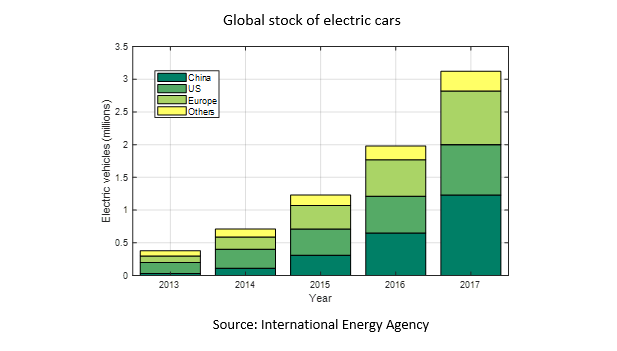Dyson's decision to relocate their headquarters to Singapore
James Dyson, the vacuum cleaning pioneer and vocal Brexit supporter, is causing some stir with his decision to relocate the headquarters of his business to Singapore.
Jim Rowan, the CEO of the Dyson Company, said that "the move is nothing to do with Brexit or tax”. This is probably true. The normal corporation tax rate in Singapore is 17%, compared with 19% in the UK. Brexit is also of secondary importance to a global company like Dyson. So why did Dyson decide to move to Asia?
James Dyson has been steering operations towards Asia for a long time. Back in 2002, he shifted all manufacturing from Britain to Malaysia. Dyson has plants in Singapore, China and in the Philippines. More importantly, Dyson’s markets are in Asia. We don’t have the figures for 2018 yet, but Dyson’s turnover increased by 40% in 2017 to £3.5 billion. And the Asian market played a pivotal role by accounting for over 70 percent of the growth. James Dyson credits this growth to the surge in the number of middle- and upper-class consumers in the region, who seem to appreciate the company’s products.
And James Dyson is no stranger to Singapore. In 2012, Dyson started motor manufacturing in Singapore, and opened an R&D lab there in 2017. In October last year, Dyson unveiled the plan to manufacture their electric vehicles in Singapore (planned for 2021), citing access to supply chains, customers, and talent as the key reasons.
China is the key market for electric cars, accounting for 40% of the worldwide stock of electric cars on the road in 2017 (see Figure). The free trade agreement between Singapore and China will allow Dyson to export its electric cars from Singapore to China tariff-free.
It seems that Dyson is following a strategy that combines market- and asset-seeking motives. Rather than running away from Brexit, the company may be running towards seizing the opportunities that Asia has to offer for their business.
It is, of course, possible that Dyson has misjudged both the move to the electric car market and the move to Singapore. Dyson has accumulated R&D expertise in producing vacuum cleaners, hand driers and other small appliances. Electric cars are much more complex products that require different types of knowledge. And there are already many formidable competitors out there, ranging from Tesla to Toyota. An R&D base in Singapore may not be enough to accumulate sufficient technical and operational knowledge to successfully produce electric cars. Still, you cannot fault James Dyson’s ambition to grow and expand the business.
So there are good business reasons for Dyson’s re-location to Singapore. But it was inevitable that the timing of Dyson’s decision to leave Britain would attract considerable criticism from different quarters because James Dyson has been a vocal supporter of Brexit. Perhaps the key lesson here is that business leaders should try to avoid getting involved in politics, if they want to avoid (whether deserved or not) accusations of hypocrisy.
Article written by Dr Raquel García-García, The Open University Business School and Professor Jędrzej George Frynas, The Open University Business School.

